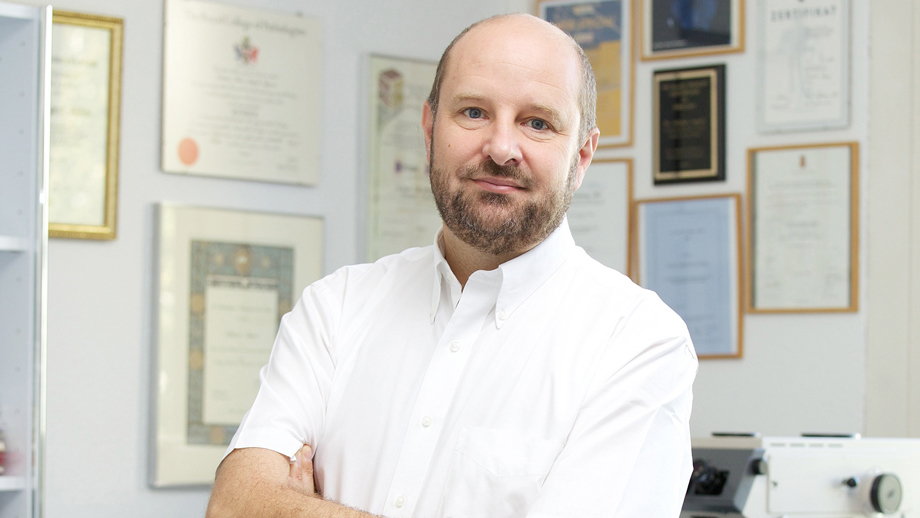Adriano Aguzzi: Prion Expert At Zurich - Insights & Research
Can a single individual's dedication reshape the landscape of scientific understanding? The life and work of Professor Adriano Aguzzi, a leading figure in prion disease research, suggests that unwavering commitment, coupled with innovative approaches, can indeed leave an indelible mark on the scientific world.
Professor Adriano Aguzzi, a name synonymous with groundbreaking research in the field of prion diseases, currently holds the distinguished positions of Professor and Director of the Institute of Neuropathology at the University of Zurich, Switzerland. His career, spanning several decades, has been a relentless pursuit of understanding the intricate mechanisms underlying these devastating neurological disorders. His expertise extends beyond the laboratory; he is a sought-after voice on several scientific boards and advisory roles, testament to the respect he commands within the scientific community. This reputation has been built on a foundation of rigorous research, innovative methodologies, and a deep understanding of the complexities of prion pathogenesis.
| Adriano Aguzzi: A Biographical Overview | |
|---|---|
| Full Name: | Adriano Aguzzi |
| Born: | Pavia, Italy |
| Education: | MD, University of Freiburg Medical School (Freiburg, Germany), 1986 |
| Postdoctoral Studies: | Vienna |
| Venia Legendi: | Neuropathology, University of Zurich, 1993 |
| Current Position: | Professor and Director, Institute of Neuropathology, University of Zurich, Switzerland |
| Research Focus: | Prion Diseases, Immunological and Molecular Basis of Prion Pathogenesis, Neurosciences, Immunology |
| Scientific Advisory Board: | Heading up the formation of mercaptor's scientific advisory board (SAB) |
| Awards and Grants: | Recipient of several prestigious awards and grants |
| Email: | adriano.aguzzi@usz.ch |
| Website: | Institute of Neuropathology, University of Zurich |
Aguzzi's research journey began with a fundamental question: How do these infectious agents, prions, wreak such havoc on the brain? His work has been characterized by a multidisciplinary approach, combining the power of transgenetics with sophisticated molecular and immunological techniques. This has allowed him not only to identify the key steps in the pathogenesis of prion diseases but also to clarify the intricate interplay between prions and the immune system. His laboratory has become a crucible for innovative techniques, including the development of novel methods for tissue clarification and 3D imaging of whole brains. This technological advancement has revolutionized the way researchers visualize and study the impact of prion diseases on the brain's structure and function.
One of Aguzzi's most significant contributions has been his deep dive into the role of the immune system in prion diseases. His investigations revealed that prions, contrary to initial beliefs, do colonize the immune system, a discovery that has had profound implications for understanding the disease's progression and potential avenues for therapeutic intervention. His findings convinced governments worldwide to undertake efforts to limit human exposure, an acknowledgment of the practical impact of his scientific breakthroughs. These efforts, aimed at limiting exposure, underscore the crucial role research plays in protecting public health and preventing the spread of these devastating diseases.
Aguzzi's commitment is further reflected in his dedication to the formation of Mercaptor's Scientific Advisory Board (SAB), highlighting his willingness to contribute his expertise beyond the confines of academia. This involvement underscores the importance of collaboration between academic research and the development of therapeutic strategies. The formation of such advisory boards is a critical step in translating scientific findings into tangible benefits for patients.
His work is also recognized and distinguished through numerous awards and grants. His contributions have been instrumental in advancing our understanding of prion diseases, offering hope for future treatments and preventative measures. Moreover, his role as a corresponding member of the Division of Mathematics and Natural Sciences abroad since 2001 reflects the international recognition and impact of his research.
Prion diseases, or transmissible spongiform encephalopathies (TSEs), are a particularly insidious group of neurodegenerative disorders. They are caused by prions, misfolded proteins that can induce other normal proteins to misfold, leading to neuronal damage and ultimately, fatal outcomes. The 1980s saw widespread concern as these diseases came under intense scrutiny, especially with the emergence of Bovine Spongiform Encephalopathy (BSE), or "mad cow disease", and its transmission to humans in the form of variant Creutzfeldt-Jakob disease (vCJD). The resulting crisis highlighted the importance of understanding prion diseases and controlling their spread.
Over the past 25 years, Aguzzi has consistently dedicated himself to studying the immunological and molecular basis of prion pathogenesis. The fact that he's been using a combination of molecular, transgenetics, and immunological techniques, emphasizes his commitment to a comprehensive understanding of prion diseases. His work has served as a cornerstone for understanding how prions interact with the immune system. This, in turn, has been crucial in clarifying the disease's progression.
Aguzzi's focus on transgenetics is notable. This technique allows researchers to manipulate the genes of mice, creating models that can be used to study prion diseases in a controlled environment. This approach enables researchers to test hypotheses and evaluate potential treatments. The genetic manipulation of mice is a powerful tool in prion disease research. By studying the genetic basis of prion pathogenesis, researchers can pinpoint the key factors that contribute to the disease's development and progression.
Aguzzi's findings have had a practical impact, leading to policy changes aimed at safeguarding public health. This is a testament to the direct relevance of his research. Furthermore, his role as a professor at the University of Zurich, Switzerland, allows him to mentor the next generation of scientists and to contribute to the advancement of knowledge in the field. His continued commitment to his work and his willingness to share his expertise with others underscores his position as a leading figure in prion disease research.
The path of scientific discovery is seldom smooth. While Aguzzi's work has garnered widespread acclaim, it is important to acknowledge that scientific endeavors are also subject to scrutiny and debate. It is important to acknowledge these challenges and to maintain a commitment to rigorous scientific practice. This is especially crucial in the experimental natural sciences. These instances highlight the crucial need for constant vigilance, a commitment to rigorous methodological standards, and a culture that fosters open discussion and critical self-assessment.
The study of prion diseases is a complex undertaking, demanding a combination of scientific expertise, technological innovation, and an unwavering commitment to understanding the intricacies of these devastating conditions. Adriano Aguzzi's career embodies this ideal, serving as an example of how dedication and innovative research can lead to significant advances in the fight against these diseases. His research helps advance the knowledge of both the neurological and immunological aspects of these diseases.



